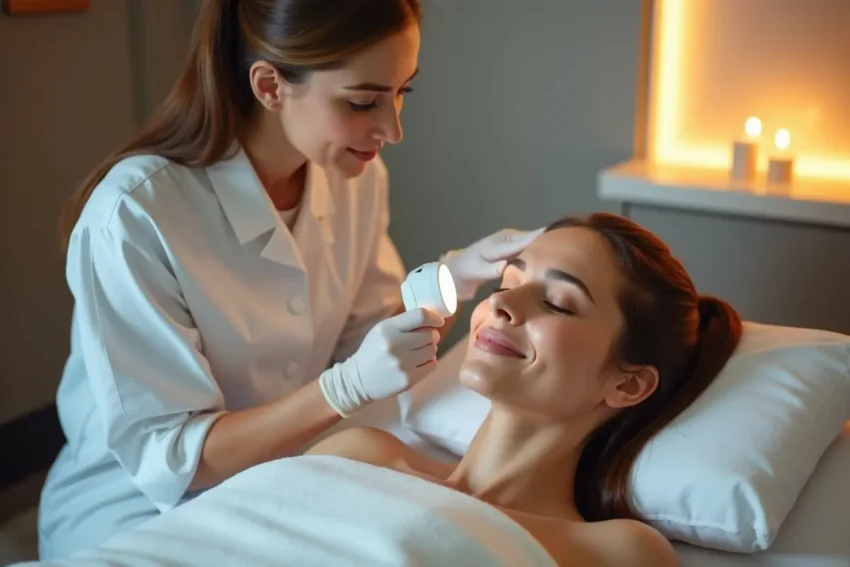Healthy, youthful-looking skin often reflects how well it’s cared for beneath the surface. Skin rejuvenation focuses on restoring tone, texture, and elasticity through treatments that encourage natural repair and renewal. From micro-exfoliation and light-based therapies to collagen stimulation, these approaches aim to address concerns like fine lines, uneven pigmentation, and dullness. The goal is to enhance skin vitality while maintaining a natural, refreshed appearance over time.
Modern advances have made these techniques more accessible and practical, appealing to individuals seeking visible improvements without the need for invasive procedures. For anyone interested in achieving transformative results with minimal downtime or discomfort, Radiant Results explores how this groundbreaking technology can be integrated into everyday life and shares practical tips for optimal outcomes. Thoughtful care routines, combined with consistent maintenance, can lead to long-lasting skin health and confidence.
The Role of Collagen in Youthful Skin
Collagen is essential for maintaining skin firmness, smoothness, elasticity, and youthfulness. Its levels decline after age 25 due to natural aging, environmental influences, stress, poor diet, sun exposure, and unhealthy lifestyle habits, resulting in wrinkles, thinning, and sagging. Supporting collagen production is key in treatments and skincare, especially for anti-aging. Light therapy naturally boosts collagen by stimulating fibroblast cells, thereby increasing collagen levels, diminishing the appearance of aging signs, and accelerating healing.
How Light Therapy Stimulates Collagen
Light therapy utilizes wavelengths in the red and near-infrared spectrum to stimulate collagen production in the skin’s dermis. This layer is challenging for topical creams and serums to reach. These wavelengths energize mitochondria, prompting fibroblast cells to become more active. This leads to increased collagen production, improved skin elasticity, and accelerated cell renewal and healing.
Light therapy can be applied at home with LED masks or portable light panels, or administered in dermatology clinics or medical spas. It provides a gentle, cumulative benefit with little risk of irritation and almost no downtime, making it a favored skincare innovation.
Clinical Evidence and Additional Skin Benefits
Light therapy is a validated approach for rejuvenating aging skin, supported by clinical evidence. Research indicates that red and near-infrared treatments diminish fine lines, deep wrinkles, and enhance skin smoothness and tone. It stimulates collagen production, providing long-term improvements in skin quality and resilience.
Additionally, it has anti-inflammatory benefits, helping to reduce redness, swelling, and irritation often associated with sensitive or mature skin. Consistent sessions can lessen hyperpigmentation, sun spots, and minor scars, resulting in a healthier-looking complexion. Improved local blood flow promotes cellular repair, resulting in luminous skin.
Incorporating Light Therapy into Your Routine
Light therapy is a favored and effective skincare technique, with LED masks and small panels being especially popular among busy people. Sessions last between 10 and 20 minutes and can be combined with other skincare routines. Improvements develop gradually; most users notice enhancements in skin texture, tone, and firmness after four to eight weeks of consistent use.
To achieve the best results, begin with clean, makeup-free skin, wear eye shields or dark glasses, and follow the device’s recommended usage frequency and intensity guidelines. Patience and commitment are essential, as steady progress leads to lasting changes.
Precautions and Professional Guidance
Light therapy is generally safe for most skin types, but caution is advised for individuals with certain skin conditions. Individuals with photosensitive conditions or those taking light-sensitive medications should consult a healthcare provider first.
Consulting a dermatologist can help customize the wavelength, frequency, and duration of treatments, enhancing safety and results. This guidance also ensures that light therapy can be safely combined with other treatments, such as retinoids, exfoliants, or microneedling, thereby reducing risks and enhancing effectiveness.
Conclusion
Light therapy is a non-invasive skincare technique that harnesses the body’s natural processes to stimulate collagen production, reduce the appearance of aging signs, revitalize the face, and prevent future skin damage.
Its straightforward incorporation into daily habits and scientifically supported effectiveness in targeting core issues position it as a prominent skincare innovation. To achieve sustained improvements, consulting a qualified dermatologist and maintaining regular use are crucial for developing healthier, firmer, and more radiant skin that resists the effects of aging.

